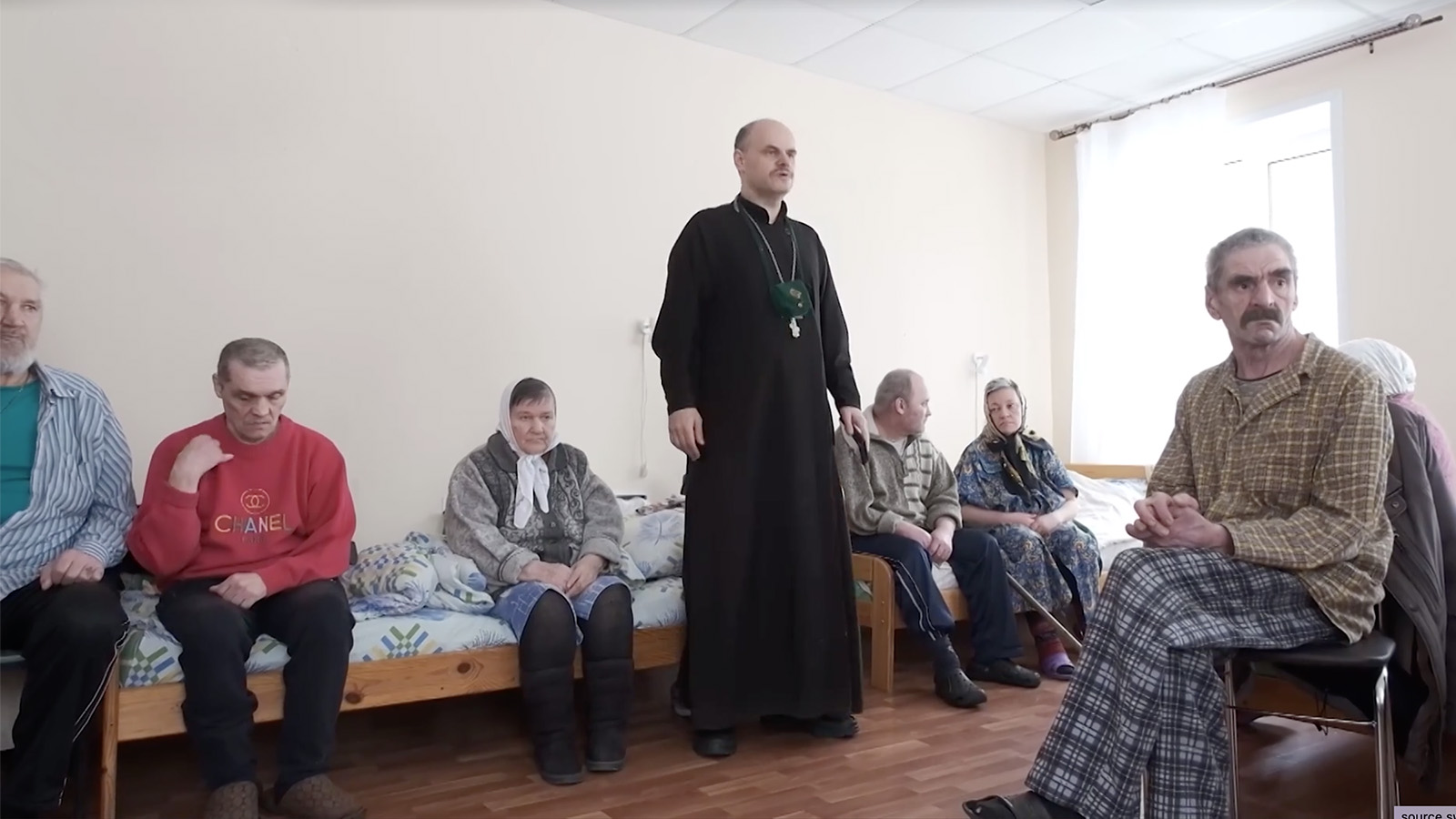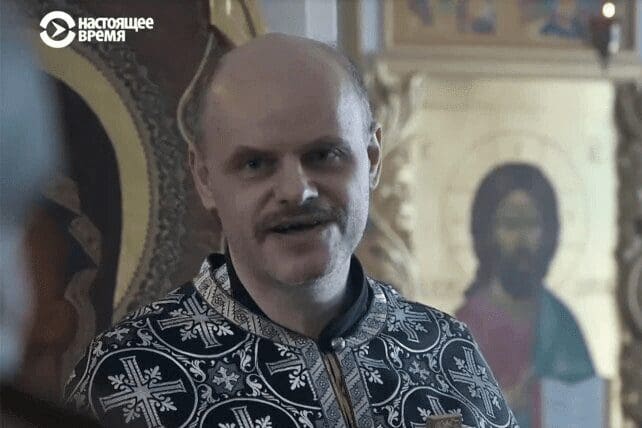(RNS) — The Rev. Ioann Burdin, rector of Resurrection of Christ Orthodox Church in the Russian village of Nikolskoye, offered a simple explanation for why he spoke out last month against his country’s invasion of Ukraine.
“I don’t consider it possible to remain silent on this situation,” he said in an interview, speaking through a translator. “It wasn’t about politics,” he added. “It was about the Bible. … If I remain silent, I’m not a priest.”
It was an unassuming statement with far-reaching implications for a Russian Orthodox priest who made international headlines last month after Russian authorities fined him for his dissent. His actions were a break from the norm: Russian Orthodox leaders typically closely align their ideology, at least in public, with the Kremlin’s.
Burdin outlined his reasons for criticizing the war to Lew Nescott Jr., an independent journalist who covers religion and politics. Nescott provided Religion News Service with recordings and transcripts of his interviews with Burdin, some of which were conducted through a translator. Burdin also gave RNS permission to edit his responses for clarity.
Burdin said his first public pushback to Russia’s invasion came in an open letter he published online on Feb. 25, shortly after the war began. The priest said the goal of the letter, which he described as “anti-war,” was to condemn the invasion of Ukraine as a “real war” and a “Russian invasion” — phrases that depart from Russian President Vladimir Putin’s insistence it be described as a “special military operation.”
The priest said the letter, which was signed by Burdin and another cleric, insisted “blood is not only a curse to the killers” but “also to those who kept silent” or “didn’t protest.”

The Rev. John Burdin, center, ministers to individuals away from his church. Video screen grab via CurrentTime.tv
“The duty of all Christians is not to support the power in this … aggressive war,” Burdin said in an interview. “We don’t have to repeat mistakes of those Christians who supported the German government when they invaded Poland many years ago,” he said in an apparent reference to the beginning of World War II — when Russia also invaded Poland.
The priest said the letter triggered debate online, although his local superior initially respected his right to his own opinion.
Burdin’s declarations contrasted with the preaching of Patriarch Kirill of Moscow, the head of the Russian Orthodox Church. Kirill is widely seen as having endorsed the war and laid the spiritual groundwork to justify it, suggesting in a recent homily the invasion is part of a larger “metaphysical” conflict between Russia and Western nations whose agenda is to promote, the prelate said, “gay parades.”
Even so, a vocal group of dissenting Russian Orthodox priests in Ukraine and elsewhere have stopped commemorating Kirill’s name during their worship services. More than 280 Russian Orthodox priests from different parts of the world — including Burdin, in Russia — also signed on to an open letter in early March calling for “the cessation of the fratricidal war” against Ukraine.
Around the same time, Burdin delivered a short address during a worship service on “Forgiveness Sunday” decrying Russia’s actions.
“I told my parishioners that Russians and Ukrainians are two parts of one church,” said Burdin, who later noted he was born and educated in the Ukrainian city of Odessa. “For a Russian Orthodox priest like me, it’s like civil war.”

